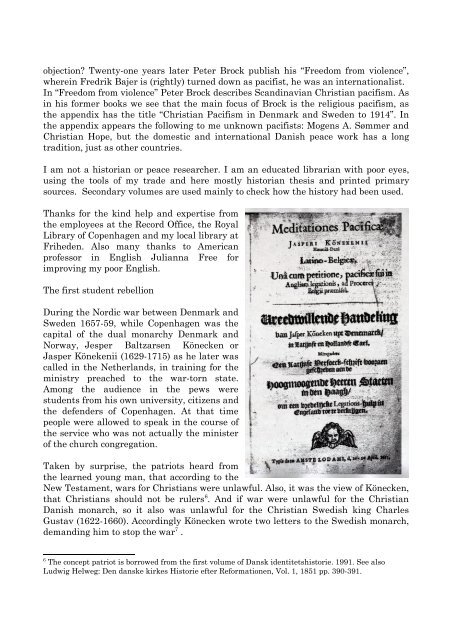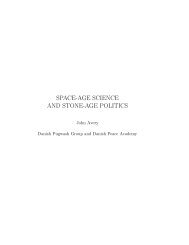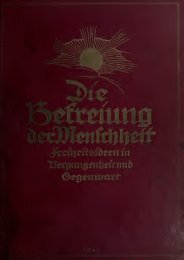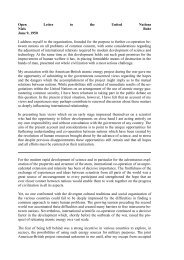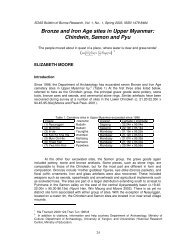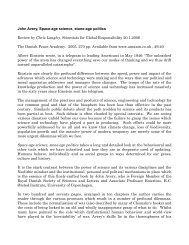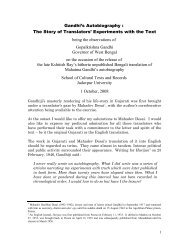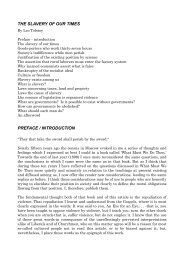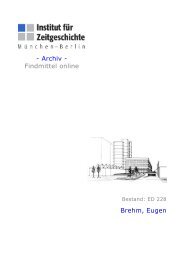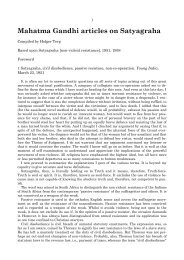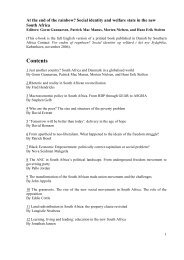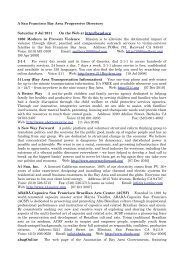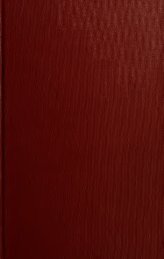Terp, Holger: Danish Peace History - Det danske Fredsakademi
Terp, Holger: Danish Peace History - Det danske Fredsakademi
Terp, Holger: Danish Peace History - Det danske Fredsakademi
You also want an ePaper? Increase the reach of your titles
YUMPU automatically turns print PDFs into web optimized ePapers that Google loves.
objection? Twenty-one years later Peter Brock publish his “Freedom from violence”,<br />
wherein Fredrik Bajer is (rightly) turned down as pacifist, he was an internationalist.<br />
In “Freedom from violence” Peter Brock describes Scandinavian Christian pacifism. As<br />
in his former books we see that the main focus of Brock is the religious pacifism, as<br />
the appendix has the title “Christian Pacifism in Denmark and Sweden to 1914”. In<br />
the appendix appears the following to me unknown pacifists: Mogens A. Sømmer and<br />
Christian Hope, but the domestic and international <strong>Danish</strong> peace work has a long<br />
tradition, just as other countries.<br />
I am not a historian or peace researcher. I am an educated librarian with poor eyes,<br />
using the tools of my trade and here mostly historian thesis and printed primary<br />
sources. Secondary volumes are used mainly to check how the history had been used.<br />
Thanks for the kind help and expertise from<br />
the employees at the Record Office, the Royal<br />
Library of Copenhagen and my local library at<br />
Friheden. Also many thanks to American<br />
professor in English Julianna Free for<br />
improving my poor English.<br />
The first student rebellion<br />
During the Nordic war between Denmark and<br />
Sweden 1657-59, while Copenhagen was the<br />
capital of the dual monarchy Denmark and<br />
Norway, Jesper Baltzarsen Könecken or<br />
Jasper Könekenii (1629-1715) as he later was<br />
called in the Netherlands, in training for the<br />
ministry preached to the war-torn state.<br />
Among the audience in the pews were<br />
students from his own university, citizens and<br />
the defenders of Copenhagen. At that time<br />
people were allowed to speak in the course of<br />
the service who was not actually the minister<br />
of the church congregation.<br />
Taken by surprise, the patriots heard from<br />
the learned young man, that according to the<br />
New Testament, wars for Christians were unlawful. Also, it was the view of Könecken,<br />
that Christians should not be rulers 6 . And if war were unlawful for the Christian<br />
<strong>Danish</strong> monarch, so it also was unlawful for the Christian Swedish king Charles<br />
Gustav (1622-1660). Accordingly Könecken wrote two letters to the Swedish monarch,<br />
demanding him to stop the war 7 .<br />
6 The concept patriot is borrowed from the first volume of Dansk identitetshistorie. 1991. See also<br />
Ludwig Helweg: Den <strong>danske</strong> kirkes Historie efter Reformationen, Vol. 1, 1851 pp. 390-391.


